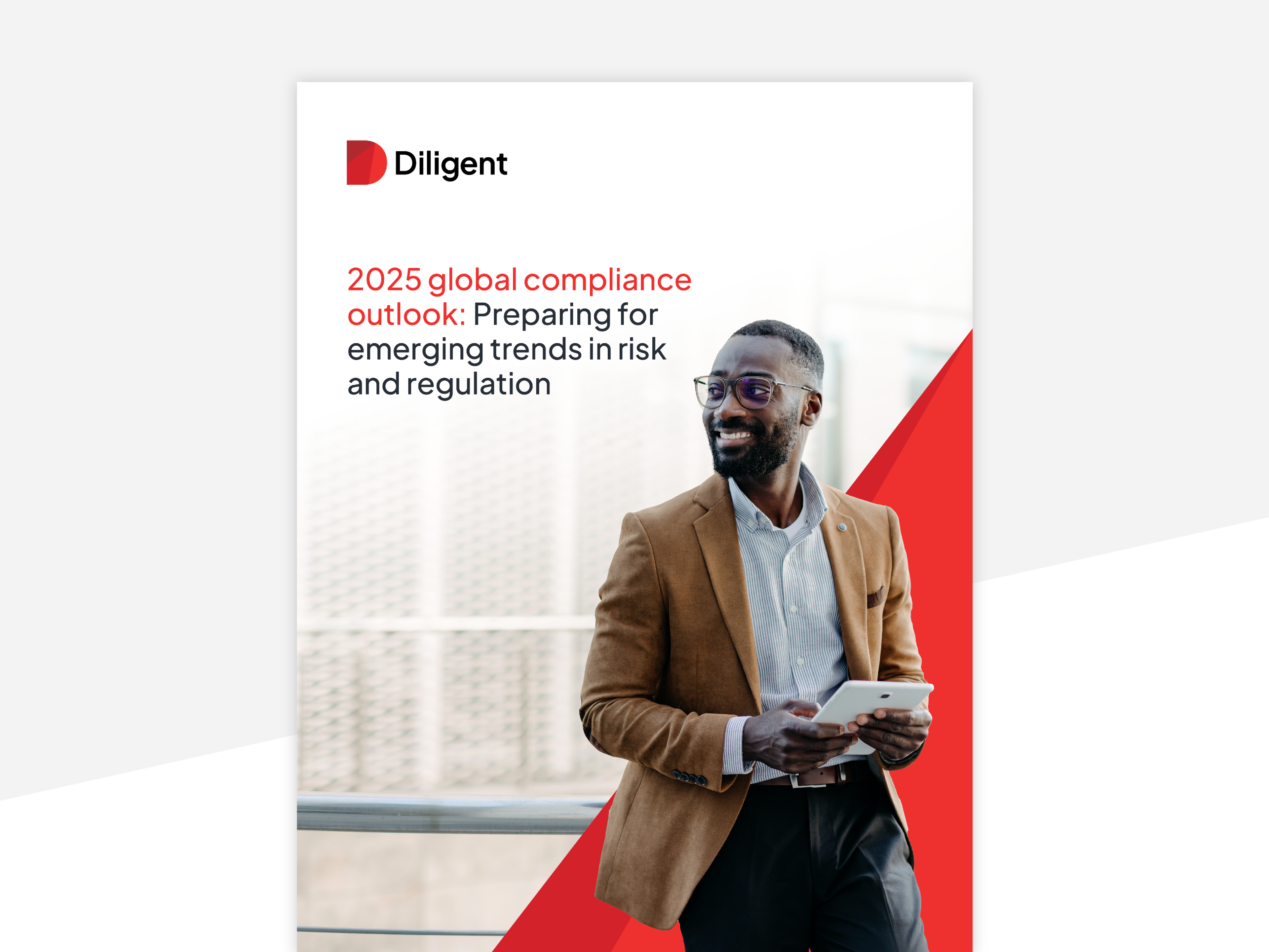
Beyond compliance: Embracing the moral imperative in fighting modern slavery
Innovation spans many areas, and compliance professionals need to be prepared and open to it. Join Tom Fox, the Voice of Compliance, as he kicks off a Diligent-sponsored three-part series of his award-winning "Innovation in Compliance"
This episode with Clint Palermo, Senior Manager of Due Diligence at Diligent, explores key laws like Canada’s S-211, the EU’s CS3D Directive, and the U.S.’s Uyghur Forced Labor Prevention Act. The discussion highlights the importance of KY3P, managing reputational risks, and continuous due diligence for ethical business practices and compliance.
Guests
More about the podcast
Beyond compliance: Embracing the moral imperative in fighting modern slavery
Commentary by Tom Fox, Host of the Innovation in Compliance podcast and Founder of The Compliance Podcast Network
In this podcast I had the opportunity to sit down with Clint Palermo, a Senior Manager of Due Diligence at Diligent, to discuss the crucial and increasingly relevant issue of human trafficking and modern slavery, particularly its significance to the business community. This is a subject that not only carries severe legal and regulatory implications but also resonates deeply with ethical business conduct, reputational risk and corporate culture.
Navigating the regulatory landscape
Clint succinctly mapped the global regulatory landscape we now operate in, highlighting initiatives from Canada’s S211 addressing forced labor in supply chains, the EU’s Corporate Sustainability Due Diligence Directive (CS3D) and the UK Modern Slavery Acts, to the United States' Uyghur Forced Labor Prevention Act (UFLPA). Companies today face a web of overlapping regulations designed explicitly to prevent forced labor and human trafficking, with consequences ranging from fines to critical operational disruptions.
Among these regulations, the UFLPA stands out. It employs a unique rebuttable presumption, stopping products at ports if suspected of being produced with forced labor. This underscores a practical business reality, understanding your supply chain has never been more vital.
The hidden costs of inaction
There is a huge hidden costs businesses face if they fail to proactively address these issues. It's easy, he noted, for companies to become inadvertently entangled in human trafficking or forced labor controversies because of complex, opaque global supply chains. Simply put, ignorance is no defense and offers no insulation from regulatory consequences or public scrutiny.
Operational disruption presents an immediate risk. Goods halted at borders represent more than compliance failures,they are a profound disruption to the business process itself. But even greater perhaps is the longer-term reputational harm. Clint emphasized that when a company's supply chain practices become publicly scrutinized, consumers increasingly respond by shifting their loyalty elsewhere. This results in significant, and often irreparable, financial damage, far beyond any regulatory fine or penalty.
The moral imperative and corporate identity
One striking element of our discussion was Clint’s emphasis on the "moral imperative." He rightly suggested that while compliance efforts are certainly about preventing legal repercussions, the essence runs deeper. Companies must recognize that modern slavery and forced labor practices fundamentally violate basic human rights, creating moral obligations beyond mere compliance.
This moral imperative shapes corporate identity. Companies consistently decide their identity through actions and inactions. Every choice about business partners, suppliers and third-party relationships ultimately defines corporate character and sets stakeholder expectations. This is not simply philosophical, but practical. A business that consciously integrates ethical standards into operations not only mitigates risks but also builds a robust, respected brand.
Practical solutions: Know your third party (KY3P)
Clint’s message was unequivocal: businesses must know exactly who they are dealing with. He introduced the concept of KY3P, Know Your Third Party, as a cornerstone of managing modern slavery risks. Proper due diligence, he argued, should be risk-based and calibrated precisely to each third-party relationship.
At Diligent, Clint and his team facilitatea tiered due diligence approach, varying from basic screening to advanced investigations, based on clearly identified risk profiles. This methodology offers the flexibility necessary to manage diverse third-party relationships efficiently and comprehensively. It moves due diligence from a burdensome compliance box-checking exercise to an empowering, strategic business practice.
Continuous vigilance
Importantly, Clint also underscored that third-party due diligence is not simply a "one and done" exercise. Circumstances develop rapidly, companies shift practices, ownership structures alter and new ethical issues arise. Continuous monitoring and periodic refreshers of due diligence assessments must become standard practice.
Building a due diligence culture means integrating ongoing assessments into the normal cadence of business operations. It ensures that business decisions are continually informed by up-to-date, accurate insights about partners and supply chain participants. This practice minimizes the risk of unpleasant surprises and reputational damage and maintains alignment with regulatory expectations.
The bigger picture
Our conversation provided a compelling reminder that combating modern slavery and forced labor is not just about avoiding regulatory pitfalls. It is about defining corporate purpose and identity, reinforcing ethical culture, and maintaining public trust. Companies have a genuine opportunity not merely to avoid risk but to proactively demonstrate leadership in ethical business conduct.
In closing our dialogue, Clint noted that just as individuals continuously define their identities through daily interactions and decisions, companies too must actively choose their identities through ethical conduct. Compliance, therefore, becomes more than just regulatory adherence; it evolves into a profound commitment to corporate integrity and ethical responsibility.
Ultimately, this is the call to action for every compliance professional; embrace due diligence and anti-slavery initiatives not merely as compliance mandates but as indispensable components of your company's ethical fabric. This path not only shields your organization from legal and reputational damage but elevates your entire corporate culture, positioning your business as a leader in ethical responsibility for years to come.
Keep exploring

2025 global compliance outlook
Download our 2025 global compliance outlook to confidently navigate complex regulations, enhance risk management and secure your company's future.

Navigating global modern slavery compliance: Legislative insights
Explore the latest legislative developments in modern slavery compliance and learn how new regulations are driving accountability and transparency in global supply chains.

Managing third-party risks in an unclear future
Explore recent trends in the global risk environment and a roadmap for proactively modernizing your organization's third-party monitoring.
